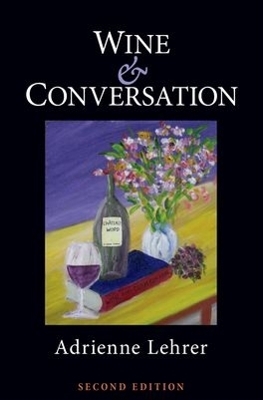
Wine and Conversation
Seiten
2009
|
2nd Revised edition
Oxford University Press Inc (Verlag)
978-0-19-530794-8 (ISBN)
Oxford University Press Inc (Verlag)
978-0-19-530794-8 (ISBN)
The vocabulary of wine is large and exceptionally vibrant -- from straight-forward descriptive words like "sweet" and "fragrant", colorful metaphors like "ostentatious" and "brash", to the more technical lexicon of biochemistry. The world of wine vocabulary is growing alongside the current popularity of wine itself, particularly as new words are employed by professional wine writers, who not only want to write interesting prose, but avoid repetition and cliché. The question is, what do these words mean? Can they actually reflect the objective characteristics of wine, and can two drinkers really use and understand these words in the same way?
In this second edition of Wine and Conversation, linguist Adrienne Lehrer explores whether or not wine drinkers (both novices and experts) can in fact understand wine words in the same way. Her conclusion, based on experimental results, is no. Even though experts do somewhat better than novices in some experiments, they tend to do well only on wines on which they are carefully trained and/or with which they are very familiar. Does this mean that the elaborate language we use to describe wine is essentially a charade? Lehrer shows that although scientific wine writing requires a precise and shared use of language, drinking wine and talking about it in casual, informal setting with friends is different, and the conversational goals include social bonding as well as communicating information about the wine. Lehrer also shows how language innovation and language play, clearly seen in the names of new wines and wineries, as well as wine descriptors, is yet another influence on the burgeoning and sometimes whimsical world of wine vocabulary.
In this second edition of Wine and Conversation, linguist Adrienne Lehrer explores whether or not wine drinkers (both novices and experts) can in fact understand wine words in the same way. Her conclusion, based on experimental results, is no. Even though experts do somewhat better than novices in some experiments, they tend to do well only on wines on which they are carefully trained and/or with which they are very familiar. Does this mean that the elaborate language we use to describe wine is essentially a charade? Lehrer shows that although scientific wine writing requires a precise and shared use of language, drinking wine and talking about it in casual, informal setting with friends is different, and the conversational goals include social bonding as well as communicating information about the wine. Lehrer also shows how language innovation and language play, clearly seen in the names of new wines and wineries, as well as wine descriptors, is yet another influence on the burgeoning and sometimes whimsical world of wine vocabulary.
Adrienne Lehrer is Professor of Linguistics (Emerita), University of Arizona. Lehrer has written on many aspects of lexical semantics: the structures of vocabularies and how words in a language are semantically related to one another. She has used wine descriptors and cooking words to test semantic theories. Recent woek has focused on creative neologisms, especially blends and the meaning of affixes.
PART I. THE WINE VOCABULARY; PART II. THE EXPERIMENTS; PART III. FUNCTIONS OF WINE TALK
| Erscheint lt. Verlag | 23.4.2009 |
|---|---|
| Zusatzinfo | 3 colour and 35 black and white line illustrations |
| Verlagsort | New York |
| Sprache | englisch |
| Maße | 208 x 140 mm |
| Gewicht | 383 g |
| Themenwelt | Geisteswissenschaften ► Sprach- / Literaturwissenschaft ► Sprachwissenschaft |
| Sozialwissenschaften ► Ethnologie ► Volkskunde | |
| Sozialwissenschaften ► Soziologie | |
| ISBN-10 | 0-19-530794-1 / 0195307941 |
| ISBN-13 | 978-0-19-530794-8 / 9780195307948 |
| Zustand | Neuware |
| Haben Sie eine Frage zum Produkt? |
Mehr entdecken
aus dem Bereich
aus dem Bereich
Das umfassende Standardwerk auf der Grundlage der aktuellen amtlichen …
Buch | Hardcover (2024)
Duden (Cornelsen Verlag)
CHF 48,95


